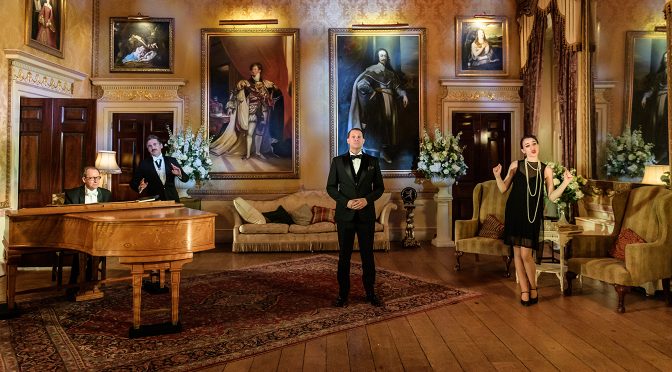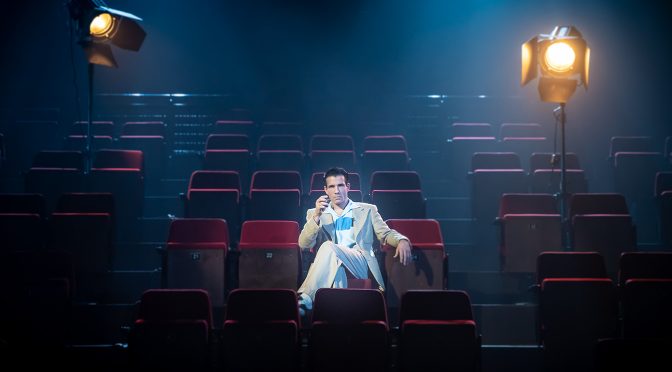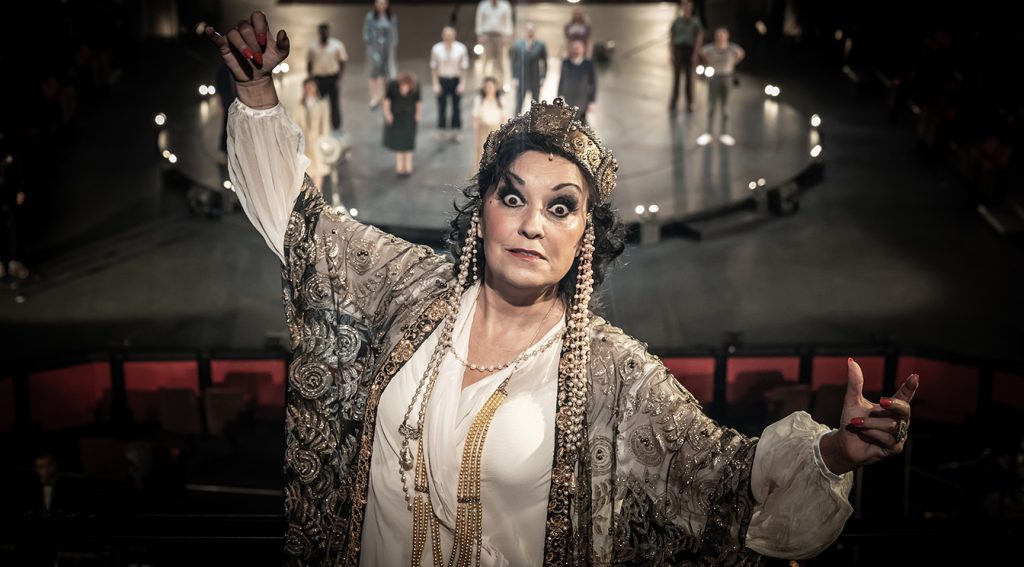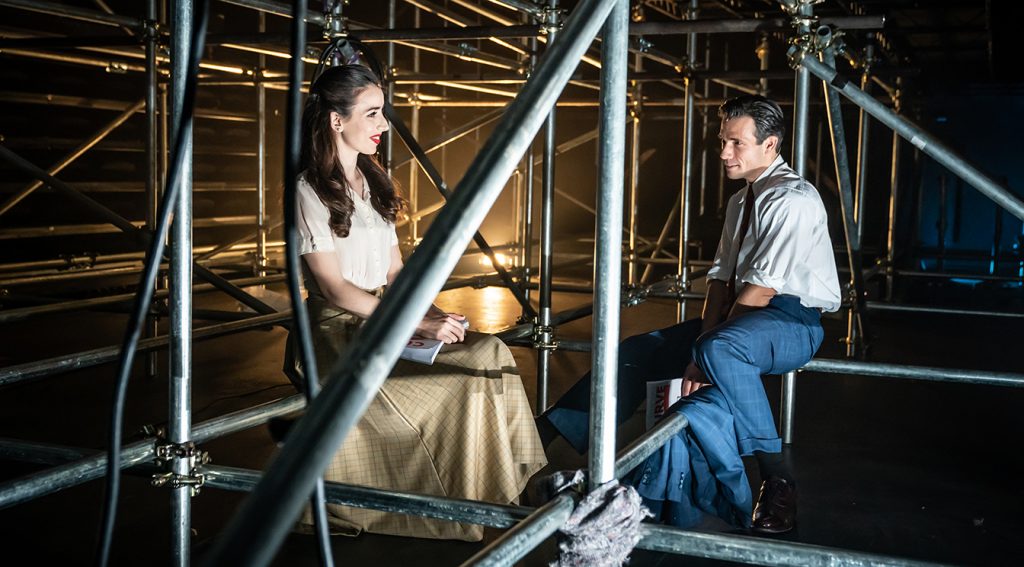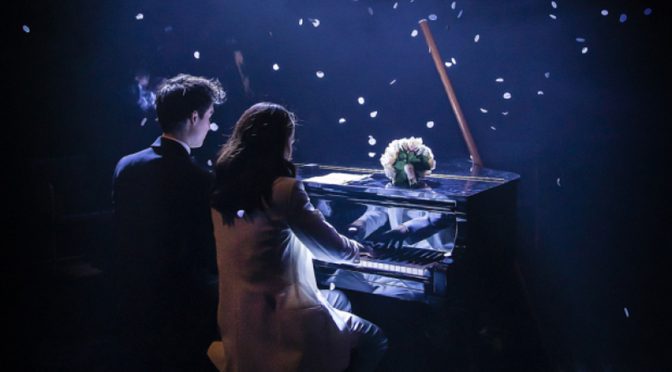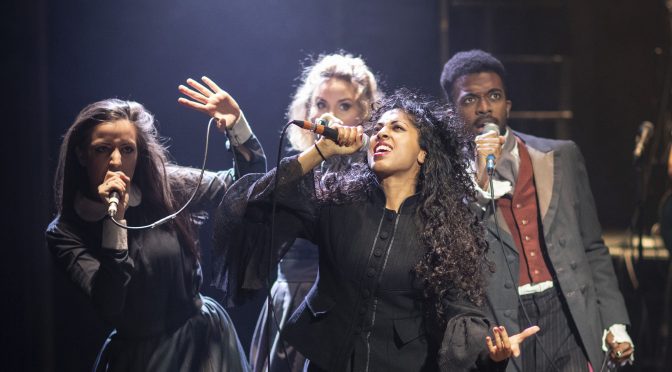Luke Bateman and Michael Conley’s musical reworking of the Faust story might not be worth selling your soul to Satan for… but it’s certainly a show to check out. It’s clever – witty and erudite – and, after a slow start, becomes devilishly good fun.
Bateman takes the role of Geoffrey Tempest, an “obscure and poor” composer looking for a serious hit show, and he does a fine job. Unlike Bateman himself, Tempest isn’t that good. As that fact dawns on him, temptations presented by the not-so-mysterious potential theatrical producer ‘Prince Lucio’ mount.
How much Tempest might sacrifice for musical theatre success is a sound joke, but it is overplayed. Similarly, the 1920s setting (the show, ably directed by Adam Lenson, is filmed in the gorgeous drawing room of Brocket Hall) and plenty of nods to melodrama, Oscar Wilde and Noel Coward become a touch laboured. It’s with the device of a show within a show – Tempest’s own “dreary little” version of Faust – that success lies.
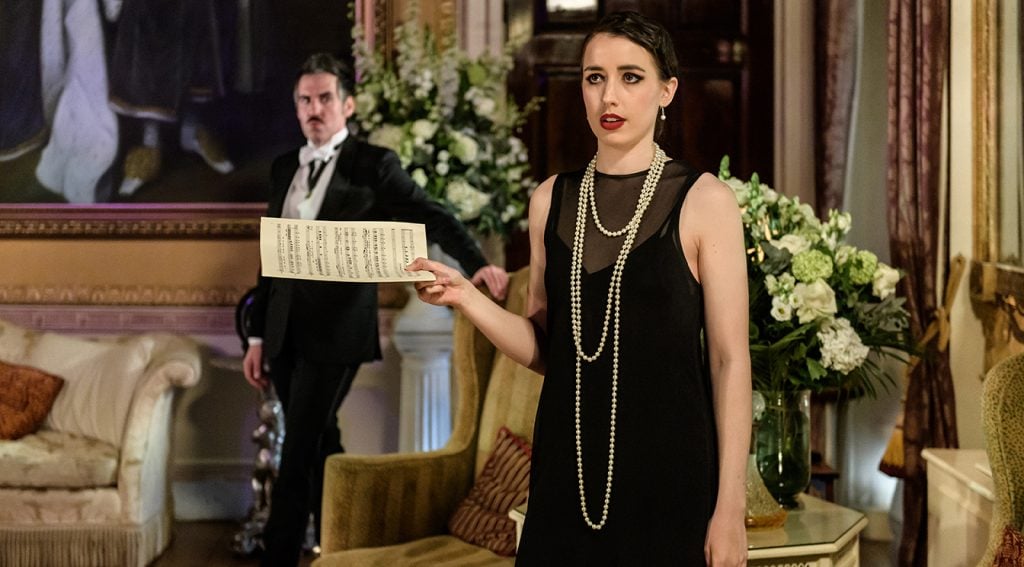
There’s an intelligent take on the role of women in musicals that backfires a little. Molly Lynch plays ‘The Woman’ well but for a good third of the show the role – deliberately stereotyped – is repetitive. The point is proved but, the humour doesn’t work. Thankfully, a nice surprising twist means Lynch shines later and might just get the best song in a score that has a good number of successes.
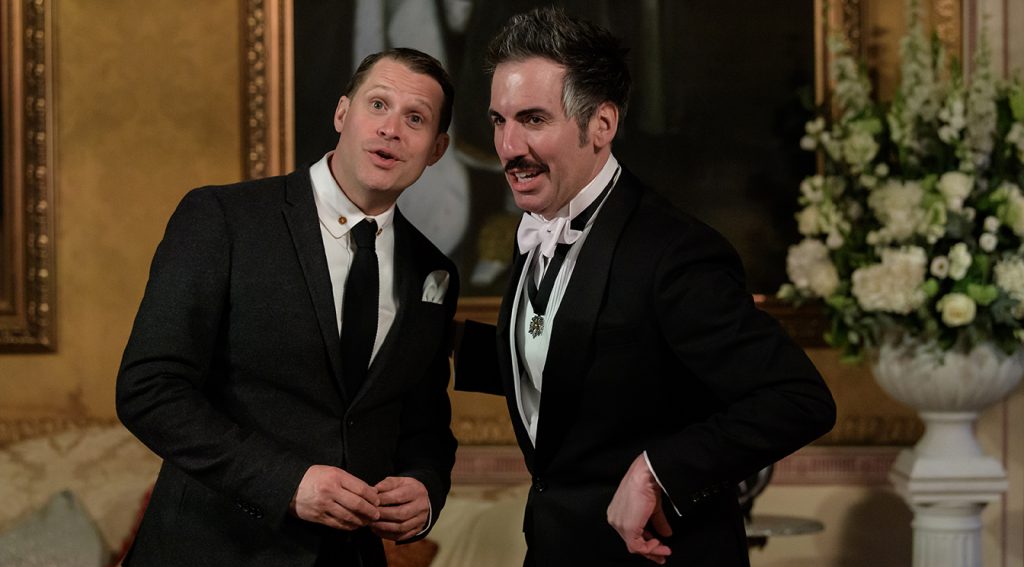
We all know that the devil has the best tunes. And in The Sorrows of Satan he certainly writes the best songs! Bateman shows his skills and considerable knowledge with the help of musical director Stefan Bednarczyk, while Conley’s lyrics are often funny and always smart. Taking the role of the Prince himself, Conley gives a wicked performance that is thoroughly good value. Magnificently hammy, “foreign in a very English way” and accompanied by thunder, every moment of his performance is worth watching.
Conley’s role is so much stronger that it makes The Sorrows of Satan a little unbalanced. What price to pay for a performance so enjoyable? I’d love to see more of Bednarczyk’s character Amiel but then getting even one song from someone without a tongue is surely impressive. And it’s impossible not admire a show that can get in a mention of a lavalier and quote Mae West.
Until 9 May 2021
Photos by Jane Hobson

